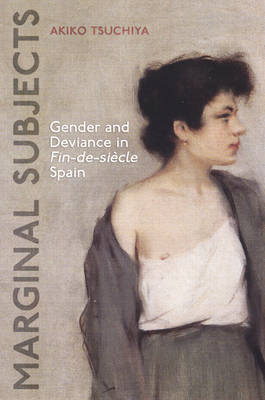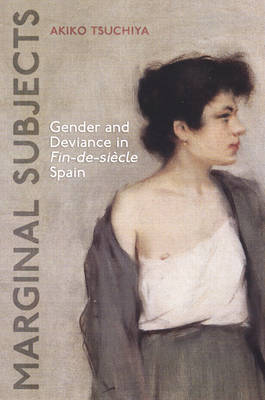
- Retrait gratuit dans votre magasin Club
- 7.000.000 titres dans notre catalogue
- Payer en toute sécurité
- Toujours un magasin près de chez vous
- Retrait gratuit dans votre magasin Club
- 7.000.000 titres dans notre catalogue
- Payer en toute sécurité
- Toujours un magasin près de chez vous
Description
Late nineteenth-century Spanish fiction is populated by adulteresses, prostitutes, seduced women, and emasculated men - indicating an almost obsessive interest in gender deviance. In Marginal Subjects, Akiko Tsuchiya shows how the figure of the deviant woman--and her counterpart, the feminized man - revealed the ambivalence of literary writers towards new methods of social control in Restoration Spain.
Focusing on works by major realist authors such as Benito Pérez Galdós, Emilia Pardo Bazán, and Leopoldo Alas (Clarín), as well as popular novelists like Eduardo López Bago, Marginal Subjects argues that these archetypes were used to channel collective anxieties about sexuality, class, race, and nation. Tsuchiya also draws on medical and anthropological texts and illustrated periodicals to locate literary works within larger cultural debates. Marginal Subjects is a riveting exploration of why realist and naturalist narratives were so invested in representing gender deviance in fin-de-siècle Spain.
Spécifications
Parties prenantes
- Auteur(s) :
- Editeur:
Contenu
- Nombre de pages :
- 256
- Langue:
- Anglais
- Collection :
Caractéristiques
- EAN:
- 9781442642942
- Date de parution :
- 30-04-11
- Format:
- Livre relié
- Format numérique:
- Genaaid
- Dimensions :
- 160 mm x 231 mm
- Poids :
- 566 g







